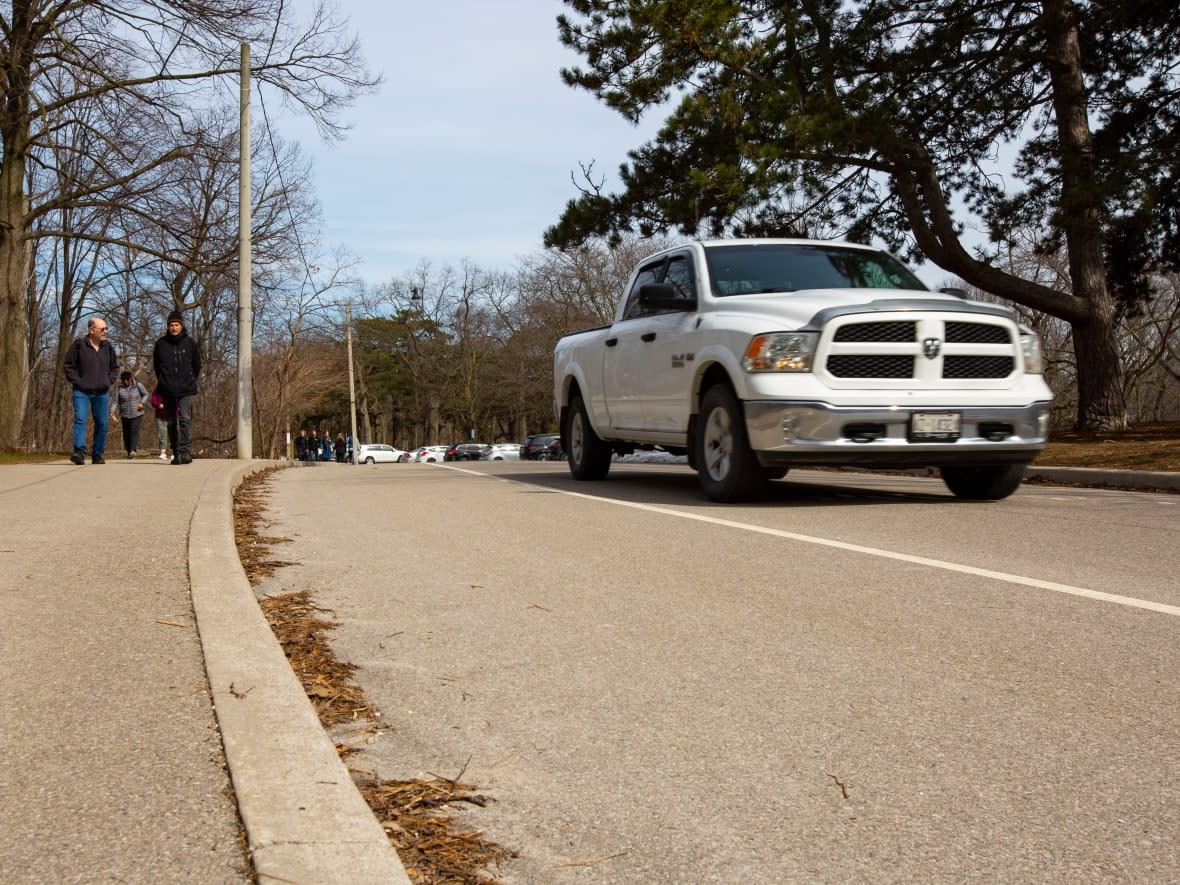High Park should be free of cars only on Sundays, city staff say in new report

City staff are recommending that High Park be free of cars only on Sundays despite a campaign calling for a complete ban on vehicles in the west-end park.
The final report of the High Park Movement Strategy, in the works since the summer of 2021, will be discussed by city council's infrastructure and environment committee next Wednesday. City council is expected to consider the report on May 10.
Staff are recommending what they call a "preferred strategy" for High Park, an approach that combines area-based and time-based road closures in the 160-hectare park, which features High Park Zoo and the High Park Nature Centre among other attractions.
But the strategy stops short of a full car ban.
"The current conditions of the travel network in High Park present challenges for park users and city operations alike. There is an urgent need for improvements that can be fully realized in a timely manner," the report says.
The recommended strategy "takes a major step forward in reducing the volume and impact of visitor vehicles but acknowledges that some accommodations for motorized transport are necessary at this stage," it adds.
Full road closures a future goal, report says
Full road closures are a future desired goal but only after key conditions have been met, the report says. Safety, accessibility and the park's natural environment are the strategy's priorities, the report notes.
The report comes after cars were banned in High Park on weekends and holidays in March 2020 at the start of the COVID-19 pandemic. The ban, still in place, was designed to give Toronto residents more park space to physically distance. The ban has proven popular, according to a city study, and advocates say thousands of Toronto residents want it to continue.

In the report, staff say the preferred strategy calls for West Road and Colborne Lodge Drive between Centre Road and Bloor Street West to be closed to cars at all times. Centre Road would become a one-way route for vehicles travelling westbound.
The strategy also calls for sidewalk improvements, traffic calming measures, separate bike lanes, enhanced transit and a new shuttle service, changes to parking, and a new pedestrian plaza among other changes.
"High Park as a legacy park is a unique and well-loved greenspace that serves local residents and visitors from across the region. It accommodates a wide range of activities and important functions, resulting in different travel patterns and preferences from different park users," the report reads.
On April 3, city staff held an open house to explain the preferred strategy. About 280 people attended the event.
Car Free High Park, a coalition of 21 organizations focused on the environment, health, street safety, urban design, active transportation and public transit, has been calling for a complete ban on cars in the park.
Car ban 'not a radical idea,' says group
In support of the ban, members have circulated a petition that now has more than 2,000 signatures, conducted an email campaign sending nearly 3,000 letters, and sent a March 27, 2023 letter to Deputy Mayor Jennifer McKelvie, various city councillors and staff.
In its letter, the coalition says the "full potential" of High Park "shines through" on car-free days.

"Families are able to walk comfortably side by side. People with disabilities are free to move beyond the cramped sidewalks. Park users of all ages and abilities are provided more space and can move about comfortably. The road is re-purposed for people walking, jogging, rolling, scooting, and biking. Everyone enjoying the safety, freedom, and peace that a car-free High Park provides," the letter reads.
"High Park becomes an oasis in the city. A joyous environment that is safe, quiet, and inspires community."
The coalition recommends the creation a shuttle-bus or shuttle-train system to allow people with disabilities to move from the periphery of the park to the interior attractions.
"Closing parks to cars is not a radical idea, but rather a sensible one" being implemented at parks across Canada, the US, Germany, London, Paris and elsewhere, the letter reads.
"It is the logical path forward in today's climate."


